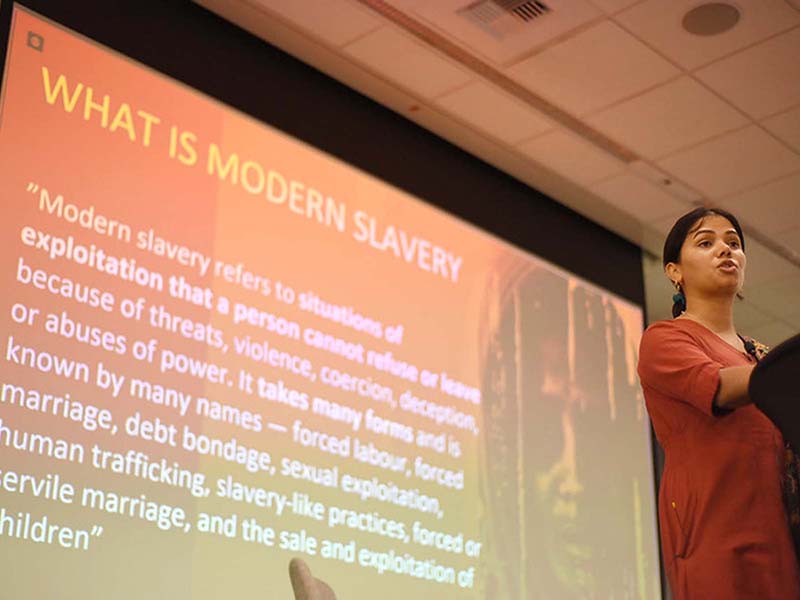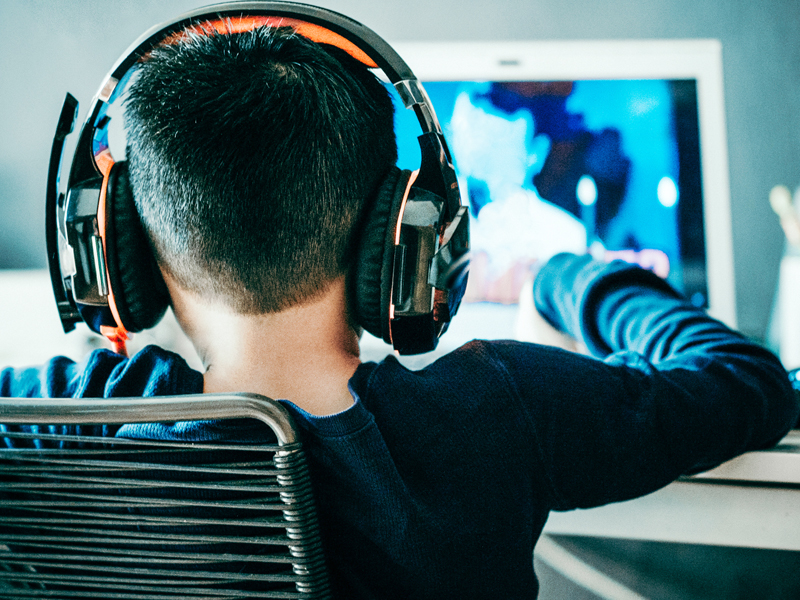
Children’s rights often feature prominently when BSR assesses the human rights impacts of information and communications technology (ICT) companies. Over the past two years, UNICEF has developed significant new thinking about the protection of children’s rights online, which is increasingly important in the digital age. Dunstan Allison-Hope spoke to Brian Keeley, editor of UNICEF’s State of the World’s Children report, the latest edition of which examines the perils and possibilities of digital technology and connectivity for children, about UNICEF’s work on this issue.
Dunstan Allison-Hope: Children are spending more time online, and doing more online, than ever before. How is UNICEF addressing this trend?
Brian Keeley: As internet and digital literacy become a necessity for full social and economic participation, UNICEF wants to see as many children as possible go online—while simultaneously staying safe. The fact that The State of the World’s Children 2017 (SOWC), UNICEF’s flagship report, is dedicated to these issues is a testament to the organization’s commitment to ensuring children harness the opportunities and avoid the risks of life online.
UNICEF is working on this in numerous ways, including by addressing children’s online safety, both globally and nationally. UNICEF is part of the WePROTECT Global Alliance to End Child Sexual Exploitation Online, which involves leading technology companies, international organizations, and 77 member countries. In addition, many UNICEF country offices run online safety campaigns and provide material support to national child safety and law enforcement agencies to keep children safe online. Across a range of areas, UNICEF’s Office of Innovation works to harness the power of technology and other innovations to best serve the interests of children.
Allison-Hope: What does UNICEF recommend that companies do to address this issue?
Keeley: Businesses are involved in children’s lives in ways they weren’t in previous generations. An obvious example is the role that digital technology and social media now play in how children make friends and maintain friendships.
UNICEF believes businesses have a role to play in several areas. There are clear concerns over how businesses process and use children’s data, and UNICEF wants to see much more transparency in this area. It also wants businesses to take a more ethical approach to developing apps and software that meet children’s real needs. And it believes the private sector has a crucial role to play in supporting law enforcement efforts to combat online child sexual abuse.
UNICEF is working with companies to integrate children’s rights into their policies and processes, for example through the implementation of the Guidelines for Industry on Child Online Protection and by expanding the debate on key issues like the role of business in protecting and promoting children’s online privacy, freedom of expression, and online access and digital literacy. In early 2018, UNICEF will release an Industry Toolkit on Children’s Online Privacy and Freedom of Expression, which will offer a set of general principles for business, as well as a checklist for companies to assess their relevant policies and products with respect to child rights.
Allison-Hope: Many companies take action to protect children from harm and abuse online, but as you highlight, much less attention is given to empowering children as rights-holders online. What is meant by empowering children as rights-holders online?
Keeley: For children to exercise their rights online, we need to ensure they have the competencies, skills, and overall digital literacy to keep themselves safe, play and socialize, use online resources, and participate in their communities.
But there is only so much we can expect from children. They need to be supported by a full range of stakeholders, including governments, teachers, and parents. Given the role they now play in children’s lives, for example through social media, businesses must also carry a large part of this responsibility. For example, it is reasonable for companies to help build children’s digital literacy through the provision of training and support for education. Children will only feel free to speak up online—a key aspect of exercising their rights—if businesses play a full role in creating a safe environment, including stepping up efforts to safeguard children’s privacy and data.
Allison-Hope: Online advertising enables many internet services to be provided for free. What are the implications of the massive growth of digital advertising for child rights online?
Keeley: It’s a little misleading to describe these services as free. Users may not be handing over cash, but they are “paying” with their time and attention, which advertisers value highly. The SOWC highlights the ethical responsibility of businesses not to design apps and software with the sole intention of grabbing users’ valuable attention.
There are other clear concerns over the impact of digital advertising on children. These include the potential impact of certain advertisements targeted broadly at children on sites they use heavily, such as ads promoting fast foods or other unhealthy products. More specifically in the digital world, there are real concerns that businesses are using children’s browsing histories and other online data to directly target behavioral advertising at them—a very unwelcome process that risks “commercializing” childhood. UNICEF will shortly be releasing a paper on this topic as part of its discussion paper series on Children’s Rights and Business in a Digital World, which we encourage you to read if you’d like to learn more.
BSR’s latest sustainability insights and events straight to your inbox.
Topics
Let’s talk about how BSR can help you to transform your business and achieve your sustainability goals.








